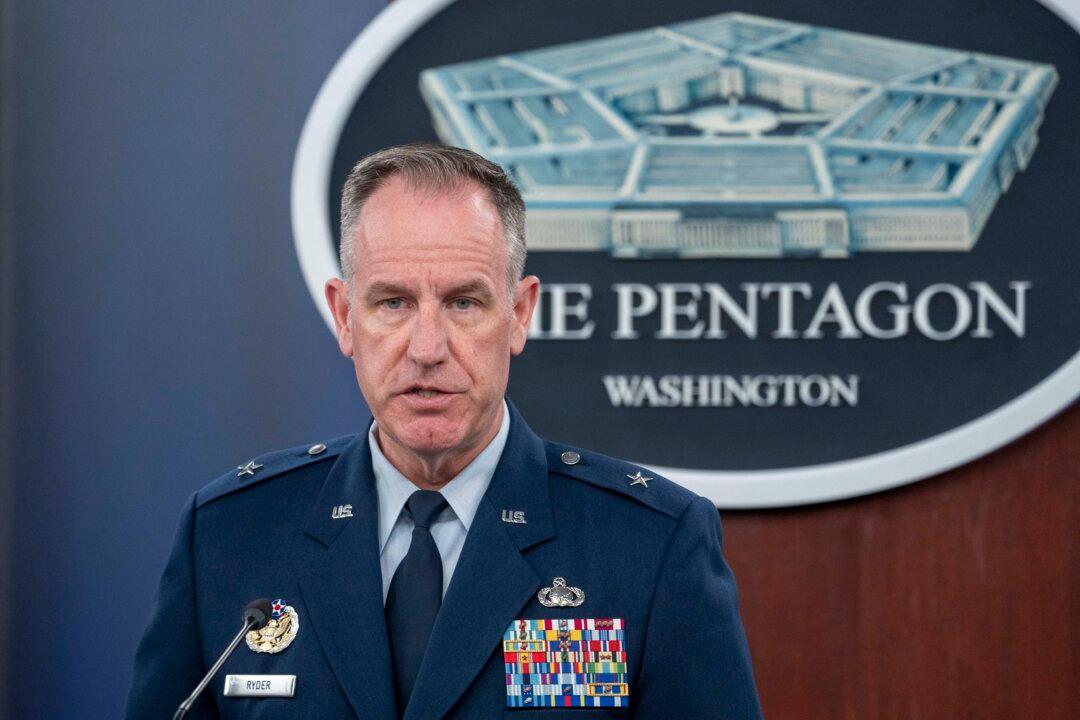The Pentagon has downplayed the impact of an alleged “attack” on a maritime pier that is currently being constructed by the United States off the coast of Gaza to help bring aid into the famine-stricken area.
Speaking at a press conference on Thursday, Pentagon spokesman Maj. Gen. Patrick Ryder said officials are currently tracking what appeared to be “some type of mortar attack” that had caused “minimal damage in the vicinity of the marshaling yard area” that will be used in conjunction with the pier.




